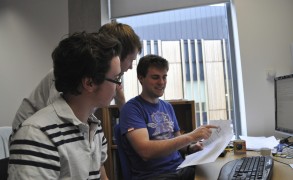The ORCHID Project
As computation increasingly pervades the world around us, it will profoundly change the ways in which we work with computers. Rather than issuing instructions to passive machines, humans and software agents will continually and flexibly establish a range of collaborative relationships with one another, forming human-agent collectives (HACs) to meet their individual and collective goals.
This vision of people and computational agents operating at a global scale offers tremendous potential and, if realised correctly, will help us meet the key societal challenges of sustainability, inclusion, and safety that are core to our future.
To fully realise this vision, we require a principled science that allows us to reason about the computational and human aspects of these systems. Delivering this science is the core research objective of ORCHID. Specifically, we seek to establish the science that is needed to understand, build and apply HACs that symbiotically interleave human and computer systems to an unprecedented degree. With multi-disciplinary expertise in the areas of artificial intelligence, agent-based computing, machine learning, decentralised information systems, crowd sourcing, participatory systems, and ubiquitous computing, the ORCHID team aims to drive the science of HACs to real-world applications in the critical domains of the smart grid, disaster response and citizen science.
Latest News
-
Nov 29
People power
ORCHID is delighted to appear in the latest (November 2016) edition of EPSRC Pioneer. -
Sep 19
ORCHID recognised for major collaboration
ORCHID took top prize in the data and connectivity category at the Collaborate to Innovate Awards, organised by The Engineer. -
Apr 08
ORCHID Final Report
The ORCHID Final report is now published and can be downloaded via the annual report button below.
Doctoral Training Programme

Offering fully funded scholarships to eligible applicants interested in building the next generation of intelligent information systems.
Learn more »Disaster response
We are developing systems that allow first responders, unmanned ground and aerial vehicles, and software agents to work effectively together.
Learn more about Disaster response »Smart Grid
We are developing novel algorithms and interfaces to optimise energy consumption and coordinate consumers and producers in the smart grid.
Learn more about Smart Grid »Citizen Science
We are developing approaches that make full use of the skills, preferences and capabilities of citizen scientists.
Learn more about Citizen Science »